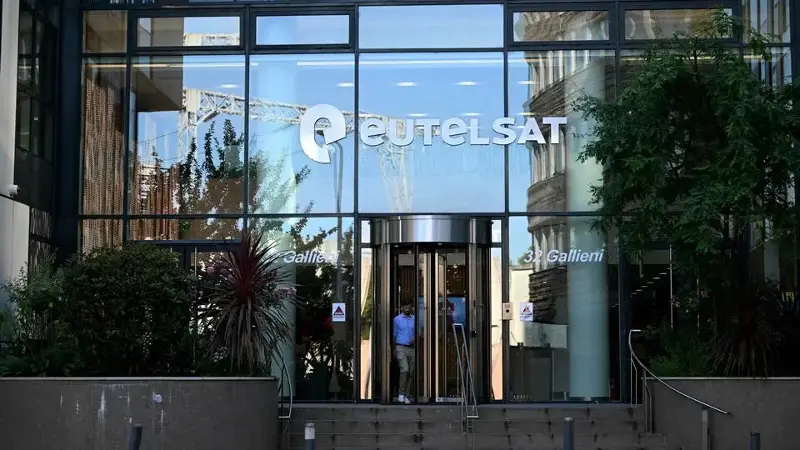
Bharti Enterprises-backed Eutelsat OneWeb, one of the companies vying to offer satellite internet in India, said on Tuesday that the true economic value of satellite communication (satcom) services didn’t lie in government revenue streams such as licence or spectrum fees, but in the long-term national benefits they would provide.
“Regulators, whether in India or globally, need to see that the economic value of satcom is not going to come from the likes of spectrum monetisation or licence fees. It is really going to come from digital inclusion,” Neha Idnani, regional vice-president for Asia-Pacific at Eutelsat OneWeb, said at the India International Space Conclave in New Delhi.Idnani added that satellite communication could also provide resilient backup infrastructure to India’s telecom networks, adding to its economic value.
Spectrum pricing
Her comments come at a time when the government is looking to finalise its spectrum allocation plan and pricing for satellite internet providers. Last week the department of telecommunications (DoT) asked the Telecom Regulatory Authority of India to reconsider some of its recommendations on assigning satellite spectrum.
Among key things, DoT has asked Trai to consider an annual spectrum charge of 5% instead of the 4% that it recommended. The DoT also is looking at giving a 1% discount on the spectrum charge to operators if a certain percentage of customers, say 5%, enrolled in the year are from the hard-to-reach areas such as border regions, hills and islands, Mint reported on 17 November.
The companies will have to pay the spectrum charge to the government from their adjusted gross revenue (AGR). They will also have to pay an annual licence fee of 8% of AGR to the government, as per the DoT’s current authorisation terms.
Currently, companies such as Starlink, Eutelsat OneWeb, Jio Satellite, Amazon Leo (previously Kuiper) and others are preparing to launch satellite internet services in India. The only hurdle now is spectrum allocation, which the telecom department and regulator are working on.
Satellite vs terrestrial
Addressing the issue of how satellite and terrestrial networks will co-exist, Idnani said satellite internet would complement telecom networks, not disrupt or compete with them. “Yes, there needs to be a level playing field but that is when satcom is getting into the turf of terrestrial. Today, we as a service provider strongly believe that we need to go and serve those places where terrestrial communication is either technically or commercially not viable as a primary mode of communication,” Idnani said. Satellite internet will best serve areas where terrestrial networks fail to provide strong, secure and resilient layers of connectivity, she added.
Last month, Elon Musk’s Starlink said a large part of its capacity in India would remain underutilised if the country's rural users didn’t sign up for its soon-to-be launched satellite internet services, terming them fundamental to how its network operates.
The price of satellite spectrum has been a bone of contention between telecom operators and industry associations representing satellite internet companies. Telecom operators have expressed concern to the government that satellite internet services will eat into their market share by tapping customers in urban areas.
